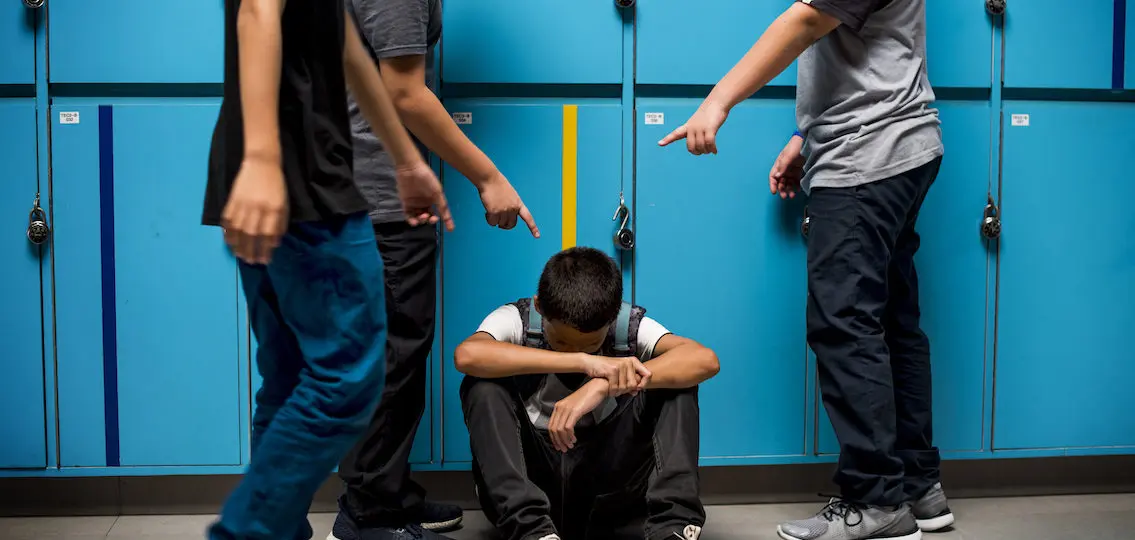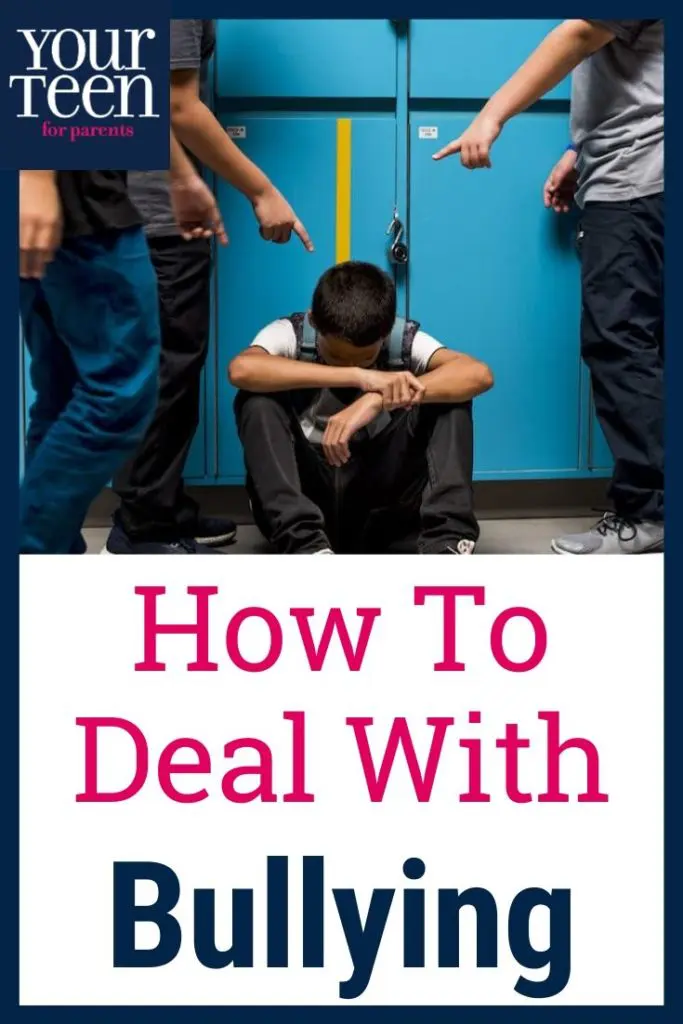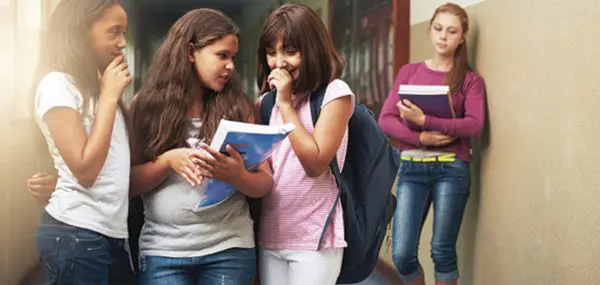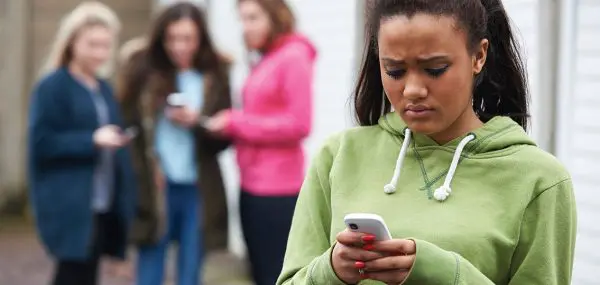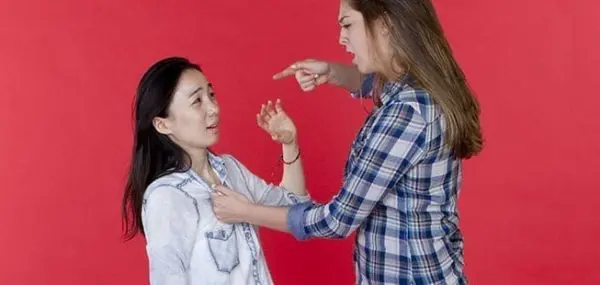We spoke with psychologist Tori Cordiano about middle school bullying and how parents can help their tween stop the bullying. Here are some key points from her interview about how to deal with bullying (or watch the full video here).
What is the Definition of Bullying
Bullying is different than social conflict. Often we use bullying to describe when two people are not getting along or someone is being excluded. But bullying is about more than feeling left out or ganged up upon. Bullying is about feeling threatened.
More specifically, bullying is a repeated pattern of targeted behavior that’s aggressive. It can be physical, verbal, or emotional, but the one constant is that there is an imbalance of power such that the person being bullied is inadequately able to defend themselves.
Parents need to resist the Mama Bear instinct that kicks in when our kids are upset. Instead, hit the pause button. And get curious about the situation.
Even if whatever happened is not bullying, that doesn’t mean that it’s not painful. So it’s important to have empathy and play a supportive role. By asking questions and taking a measured, thoughtful approach, parents can help their children.
Of course, if it is bullying, grownups need to make it safe.
How to Deal With Bullying
How can middle school kids deal with bullying?
Cordiano: We place a lot of burden on our kids when we ask them to be “upstanders.” As adults, we expect them to stand up but we forget how hard it is to go head to head with someone who may have more power.
So we can’t just say, “You need to be an upstander.” But we can talk to our children about what they can do if they observe someone being mean. Here are some options:
- Confront the bully directly
- Take the side or move physically closer to the person being targeted
- Get an adult if necessary
- Get the person being targeted to safety
What if kids don’t believe adults can change things?
Cordiano: Kids aren’t wrong. Adults are slower on the pickup and don’t understand the nuances. But adults can move to make things safer and equip kids with tools for the moment — what words to say or what actions to take.
Are tweens good at speaking up?
Cordiano: It’s important for kids to know that we can learn from our behavior. Many of us think about times when we didn’t speak up and we want to challenge ourselves and know that we can do better next time and let our kids know that too. Tell them, “Just because you didn’t handle it well this time, there is an opportunity to do it differently next time.”
Do zero tolerance policies work?
Cordiano: These policies are put in place to protect kids, but we are dealing with children whose prefrontal cortexes are not fully developed. So we need to have opportunities for them to reflect and change and grow. The key is to strike a balance between a protective and safe environment and an opportunity to learn and grow.
Does calling other parents ever go well?
Cordiano: Rarely. Here’s where pausing and reflecting comes in. Call a friend who lives far away and is neutral so you can vent and think it through. Remember, our goal is to support kids and help them problem-solve and help them get back in there in a healthy way.
How do we help parents feel optimistic about this stage of development?
Cordiano: In my years of working with adolescents, what stands out is how good they are to each other. You will not find a developmental age that is more passionate about social justice and change and the value of people coming together. There are so many examples of that to counter the other stuff.
The other antidote to bullying is empathy. If we teach it and model it and call it out when we see it, we can reframe conversations and feel hopeful that things will change moving forward.
